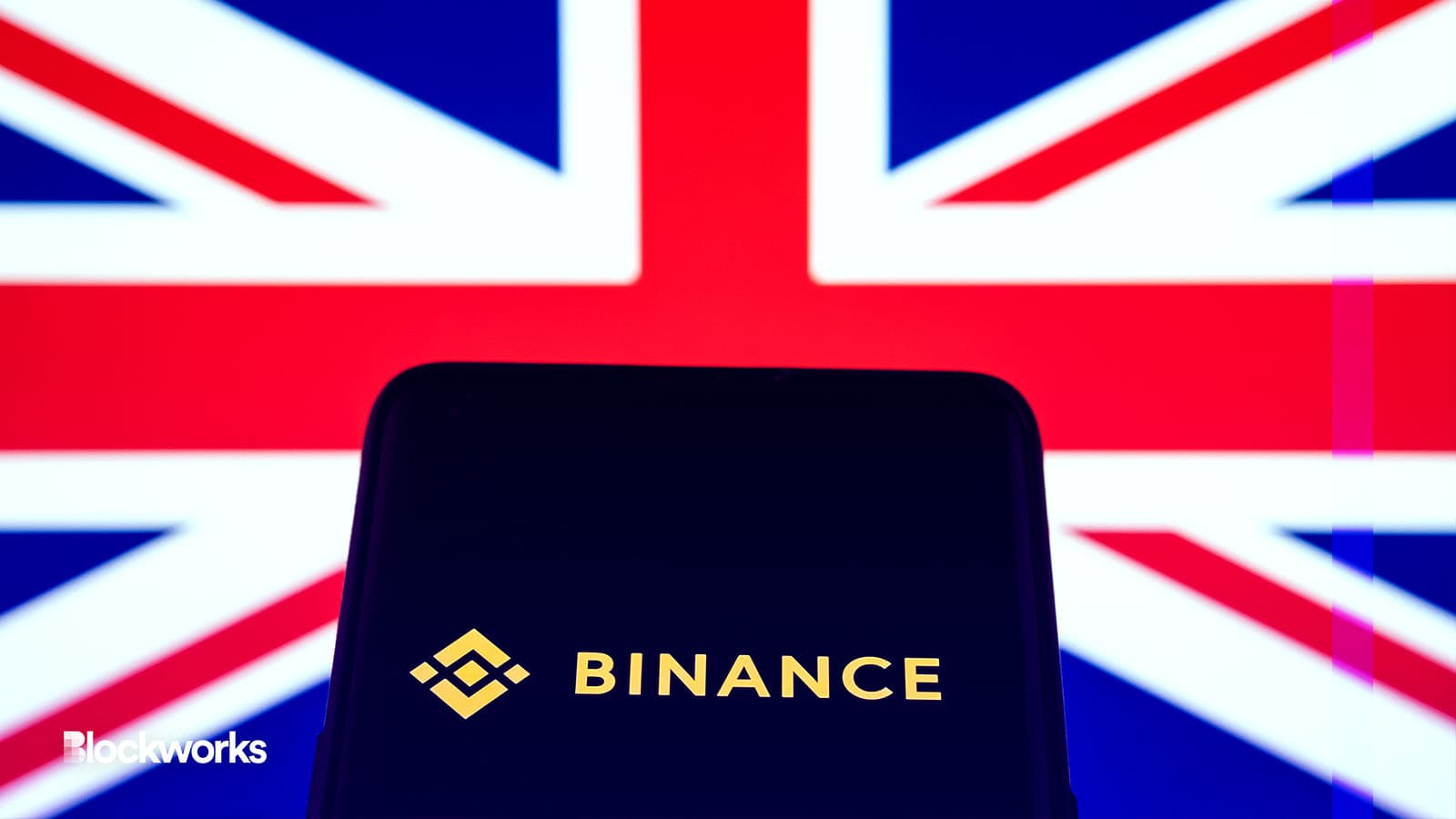Binance Loses UK Banking Partner for British Pound
Paysafe’s fiat-to-crypto provider Skrill has informed Binance that it will no longer be able to provide deposits and withdrawal services from May 22

Source: Shutterstock / mundissima, modified by Blockworks
Binance will discontinue deposits and withdrawals denominated in the British pound until it can find a new banking partner.
The crypto exchange informed users of the development via email Monday, saying that its GBP fiat partner Skrill Limited will stop offering services via the Faster Payment system, which allows transactions to complete within seconds.
GBP deposit and withdrawals will be suspended from March 13 for new users and on May 22 for all Binance users, a spokesperson told Blockworks. Any GBP deposits made after May 22 will be refunded within seven days.
“We will provide more information on the suspension of withdrawal services at a later date,” Binance told customers.
Skrill has moved away from its crypto services due to the UK regulatory environment being too challenging in relation to crypto.
The change is said to affect only 1% of Binance’s users, but the exchange said it knows these services are “valued by our users and our team is working hard to find an alternative solution for them.”
“In the meantime, all methods of depositing and withdrawing other fiat currencies as well as buying and selling crypto on Binance.com remain unaffected, including bank transfer using one of the other fiat currencies supported by Binance, and buying and selling crypto directly via credit or debit card,” the spokesperson added.
Binance announced the launch of its UK trading arm in June 2020, allowing investors to trade using GBP and euros through Binance Jersey, the island territory and British Crown Dependency located between off the coast of France.
But a year later, the UK’s financial watchdog warned that Binance was not “permitted to undertake any regulated activity” in the country.
The exchange then tapped PaySafe’s Krill as its new GBP/fiat partner in March last year, about a month after the digital payments provider launched a fiat-to-crypto withdrawal service.
The crypto industry is currently facing a lack of banking services after the collapse of crypto-friendly banks Signature and Silvergate. Last month, Binance said it would suspend US dollar transfers, with CEO Changpeng Zhao commenting that some banks are withdrawing support for crypto.
Get the news in your inbox. Explore Blockworks newsletters:
- The Breakdown: Decoding crypto and the markets. Daily.
- 0xResearch: Alpha in your inbox. Think like an analyst.






